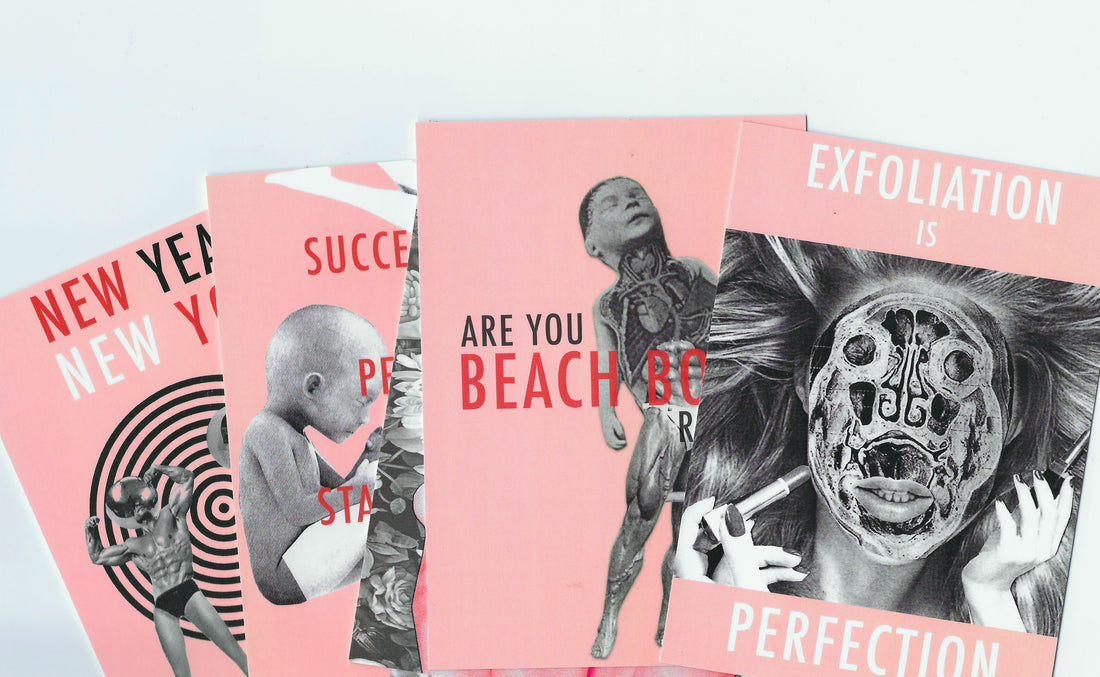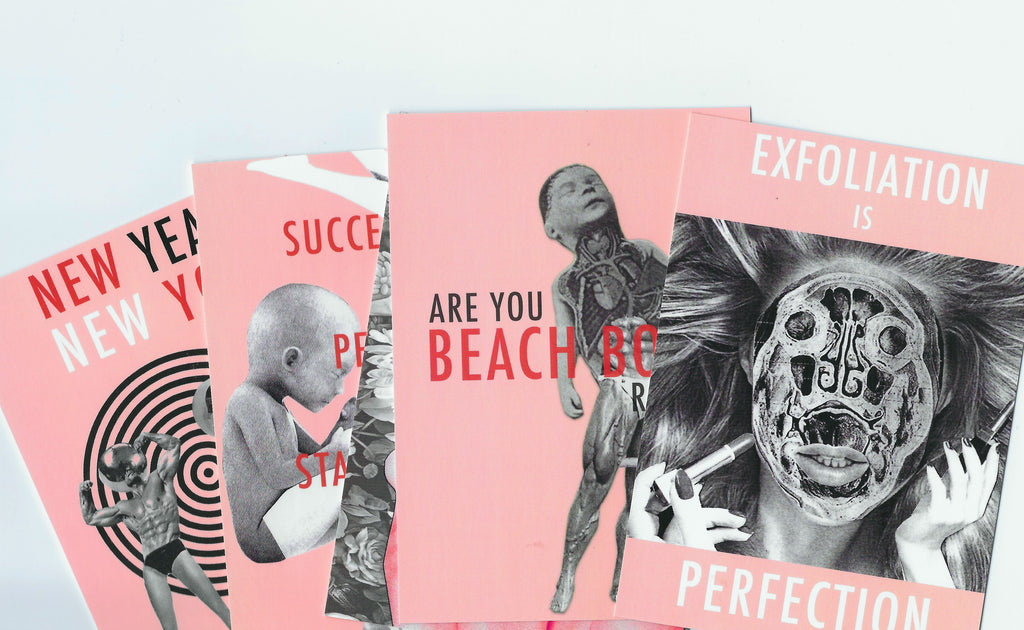
On writing ‘Death Magazine’

By Matthew Haigh
Great starts here. Awaken your incredible. Hello possible.
Slogans like these, rapidly budding and blooming in current advertising campaigns, formed the basis of the concept behind Death Magazine.
I find them fascinating because they feel like a mutating virus; they are language breaking down in real time. They are also ripe for creative exploitation - particularly in a comedy vein. You can chuck together any random combination of nouns and verbs and create your own feasible corporate slogan.Worship your fantastic. Start your incredulous. None of it means anything, but that seems beside the point with this method of advertising - it all opens itself up to surreal language play.
It’s been said elsewhere before, but you can’t really do satire anymore. The world is so ludicrous, spiralling further into the bizarre every day, that it renders satire ineffective. My approach with the book was to take what already exists and push it to its extremes. I love extremes, brutalism - blunt, yet beautiful; spaghetti and glitter vomited over machinery. Taking nonsense sloganeering as my starting point allowed me to deal in abstract non-sequiturs, jarring juxtapositions and vivid imagery. I’d also reached a point where I was sort of fed up of flowery, soft, heartfelt poetry. I craved something sleek, sharp, biting, almost metallic. Poems as little circuit parts.
Then of course you have the infamous Are you beach body ready? campaign. This brings me to the idea of body image and masculinity within the book. I was thinking of this idea of growth - men obsessed with endlessly getting bigger, gym body dysmorphia, the idea of the Perfect Body. When you think about it, no matter how toned the muscles, surely the only destination the body has is redundancy? Firstly, death means that this sculpted physic is ultimately useless; also, when we reach the point of augmentation, what will the Perfect Body look like then? Will it be a matter of toned abs, or a matter of robotic limbs, cameras for eyes, 10 extra ears…? Or will we really be uploaded to the cloud, meaning we are religiously polishing this redundant flesh machine until we’re nothing but sparkling data in the ether?
Death Magazine starts with the body and considers where we are heading physically, looking at post-death, trans-humanism, digital mortality.
It was very important to me that the book feature the word ‘death.’ Western culture, especially, cannot cope with death. Even the language of it has been altered - we now say someone has ‘passed’ - this is a softer sound, it doesn’t hit the ear in quite the same way. If you say somebody has died it’s almost as if you’ve jerked the listener out of a stupor; you can see them flinch a little; you’ve broken the unspoken agreement. Increasingly, the idea of how fabulous we are and how good we look being in any way tarnished, or ending, is unbearable. The word ‘death’ therefor becomes confrontational. The quest to outsmart death, for the body to exist forever, pushes humanity into some weird and dark places. The concept of the mind being uploaded to the cloud has been explored in numerous TV shows and novels, but the image is usually one of a digital paradise, a virtual Heaven, created for humans to exist beyond their physical lifespans. What if instead, by dabbling in this way, we find our conscious minds trapped in a digital Hell, a place where the data of ourselves begs to die, on a loop, forever?
In this way, Death Magazine says ‘this is the reality we must deal with’ - and yet here, in the book, are all the ways we are not dealing with it.
If all of this sounds gloom-heavy, fear not - the heart of the book is one of play; it is humour of the strangest and blackest order. Maybe humans will free themselves from the dictatorial and ceaseless flow of corporate campaigns. Maybe we will stop ourselves short of splicing our genes with squid in order to somehow be young forever. Who knows? Whatever happens, I find that a morbid laugh helps the madness go down.

Matthew Haigh is a poet, artist and designer from Cardiff. He is a regular contributor to anthologies by Sidekick Books – most recently collaborating with friend and artist Alex Stevens on Battalion and No, Robot, No! They also collaborated on the Tumblr series This Was No Suicide – a reimagining of Murder, She Wrote episodes produced using cut-up poetry and collage. He published a pamphlet, Black Jam, with Broken Sleep Books in 2019. |
